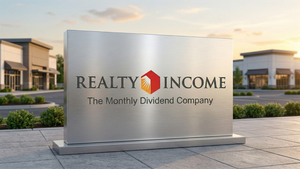When a person or group of people can influence the decision-making and behavior of other people or groups, they are said to exercise “leadership.” Leadership in organizational development, then, is the capacity and ability to influence an entire organization with the purpose of leading it to achieve concrete objectives and performance improvement. Allen Woo, an expert in intrapreneurial relations, explains how organizational development depends largely on leadership.
Leadership in organizational development is something much more complex than the control assumed over a group of people or the dominant position of the strongest in a social group. Leadership in organizational development is based on a joint vision, the pursuit of common objectives, information and knowledge.
“The importance of leadership in organizational development is not disputed. But it is well worth knowing why it is so relevant in 21st century organizations and what types of leadership can be implemented,” Woo points out.
Leaders are largely responsible for the behavior and results a group achieves. Woo discusses the different types of leadership, outlining the most relevant, such as transformational leadership.
In this type of leadership, the leader focuses on inspiring the team to think about the common good and not just their individual interests. In this way, the people in the team have a group conscience for the achievement of objectives as well as innovative thinking that generates changes conducive to success. In the process, the group feels motivated, morale increases, and work performance improves, generating a collective identity that moves based on the best purposes for the organization.
Then there is transactional leadership. Here, motivation is produced through punishments and rewards. The leader, before being a motivator, is a supervisor who is in charge of reviewing and rewarding and punishing accordingly. In this style, rewards and incentives motivate group members to achieve objectives and perform efficiently.
“Leadership is very important for the development of any organization. It is an indispensable element to work efficiently and achieve the proposed objectives,” assures Woo. “There are several reasons we can argue for the importance of leadership in organizational development.”
The leader influences the behavior of employees with his or her leadership skills. Thus, the leader takes control and makes his or her group strive to achieve the organization's goals. The leader gets results through the efforts of his followers.
The leader is not only concerned with the organization's objectives. The expectations and needs of the employees are the basis of the relationship between the leader and his group. Many people follow a leader because he or she offers them security and professional development opportunities to meet their needs and expectations.
The organizational world is dynamic and ever-changing. Every day there are regulations, trends, technological advances, which make the organization must implement changes to adapt to new conditions. Leadership in organizational development makes the group, influenced by the leader, implement changes in an agile and easy way.
The leader's influence over the group becomes a definitive factor in resolving conflicts between employees, employees against the organization or the group against other groups. The leader has the ability to understand the conflict and offer a timely solution and minimize the likelihood of an adverse outcome.
The leader is the first to detect training and education needs in his group. Thus, he can train them or obtain the resources to train them and ensure future leaders for the organization. In addition, the leader, through his influence on the group, can make them understand the conditions that the organization will face in the future and, consequently, foresee the actions that will need to be taken to ensure sustainability.
“The leader knows the needs of the members of his group and knows how to satisfy them. Likewise, he knows what tools they need to feel comfortable and develop their potential,” notes Woo. “A good leader explains the tasks he needs his subordinates to execute and is there to help them in case problems arise.”
The role leaders play enables employees to work toward goals that build organizational development. Therefore, leadership development should be an ever-present goal in modern organizations.
About Allen Woo
Allen Woo is a self-taught expert in business and personnel management. Originally from Canada, he has spent much of his adult life honing his innate skills in motivation and personal growth. Woo dedicates his time to helping businesses and individuals make significant improvements in their daily interactions, constantly exploring new methods to motivate and enhance teams. When he's away from responsibilities, he likes to focus on inner growth and enjoys outdoor activities that exercise the body and the mind.
— WebWireID295484 —





